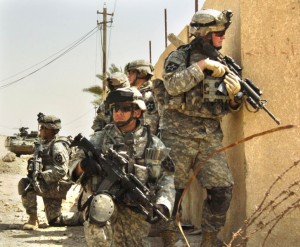
My third contribution to the Peacebuilders Panel on TransConflict centres around Baruch Spinoza’s observation that Peace is not an absence of war.
The proposition we were asked to write about is this:
Conflict transformation goes beyond merely seeking to contain and manage conflict, instead seeking to transform the root causes themselves – or the perceptions of the root causes – of a particular conflict;
Here is what I wrote:
“Peace is not an absence of war,” observed the Dutch/Jewish philosopher, Baruch Spinoza, in 1670, “it is a virtue, a state of mind, a disposition for benevolence, confidence, justice.” To people caught up in destructive or violent conflict, Spinoza’s words may seem naively utopian. Of Spinoza’s listed virtues, justice (or injustice) is often one of the reasons for taking up the struggle; confidence (in a victory of sorts) is a reason for continuing in it; while “a disposition for benevolence” seems crazy in the face of an intransigent foe.
It can be helpful to look at a conflict through the lens of cost/benefit analysis. The path of seeking to harm your opponent, through violence or other means, always exacts a price on both sides. But for those who take up this path, the desired outcomes appear to make it worthwhile. The goal may be material benefits. But psychological benefits – such as a desire for respect or revenge – also play an important part. As a destructive conflict progresses, the cost – both physically and emotionally – gets higher. And for at least one party, the confidence in an easy victory diminishes. At some point, the cost/benefit ratio doesn’t look as good as it once did, and there is a willingness to stop the struggle – to put an end to the pain of war. The point at which the fighting stops may present itself as a victory/defeat or as a cease-fire. Either way, it is still far from peace. The original causes of the conflict may remain unchanged. Now, in addition, there is an even bigger list of perceived injustices and wounds arising from the conflict itself. Research has shown that countries which have been at war with each other are much more likely to go to war again in the future.
The work of conflict transformation is to address the root causes of the conflict through non-destructive strategies – often involving both formal diplomacy and informal “citizen” diplomacy. Physical and psychological causes both need to be addressed. This is where Spinoza’s three virtues are important. There must be justice, recognising the legitimate needs and claims of all. There must be confidence in the peace process and the integrity of those helping broker the peace. And the desire for revenge must be put aside through a “disposition for benevolence”. Citizen diplomacy is particularly important in this last area: individuals and groups who are willing to apologize or forgive can play a vital role.
Check out the other contributions to this question on TransConflict. Part 1 Part 2
My earlier contributions are here: 1st Peacebuilders Panel. 2nd Peacebuilders Panel.
Mike Lowe
Helping individuals and teams get into flow





